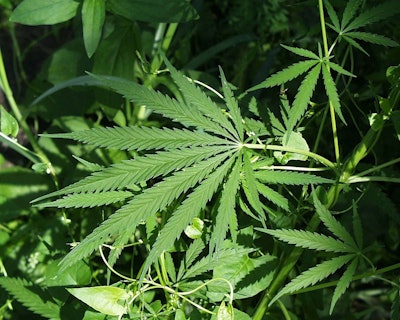
The governor of the state at the center of two cases of truck drivers being charged with drug trafficking for hauling industrial hemp is reminding hemp haulers that they are only allowed to transport the crop through the state in interstate commerce, despite hemp production being legalized at the federal level.
As reported last month, the U.S. Department of Agriculture published an interim final rule establishing rules for hemp production that also allowed a provision of the 2018 Farm Bill to take effect that barred states from impeding the interstate transportation of industrial hemp.
Idaho Gov. Brad Little issued an executive order Tuesday, Nov. 19, to resolve any conflicts between state and federal law when it comes to transporting hemp through the state. Little says the order is “a stopgap measure” until the state’s legislature passes new laws regarding hemp transportation and production in the state.
“As it turns out, the rules were published at a time when the Idaho legislature could not quickly respond,” Little says. “My executive order is a stopgap measure to address the narrow issue of interstate transportation of hemp until the Idaho legislature develops a permanent regulatory framework around hemp.”

Idaho state law still considers hemp a controlled substance, so unless state law is changed, hemp can only be in the state if it is being transported to and from out of state.
The order states that hemp haulers can only transport the crop on interstate highways and in the immediate vicinity of interstates, unless there is a detour authorized by the Idaho Transportation Department. Additionally, hemp haulers are required to stop at the first port of entry they encounter in the state and present to law enforcement the following:
- An affirmation from the driver that the vehicle doesn’t contain illicit drugs or variations of hemp not allowed by the 2014 or 2018 farm bill
- Verification, including a copy of the hemp production license from the producer of the hemp, that the hemp was produced by a licensed grower
- A lab results report that confirms each lot of hemp complies with the farm bill
- A bill of lading containing the shipment contents, origination (including lot number) and destination of the hemp, the weight of the load and the type of vehicle hauling the crop.
Additionally, each container of hemp must be labeled with the name and address of the producer, the quantity and the lot number to correspond with the required documentation.
When the hemp inspection is complete, drivers will be given an inspection report that confirms all documents were presented and whether or not any samples of hemp were taken. The order gives Idaho State Police the authority to obtain a sample of the hemp for off-site testing to ensure it meets the requirements of the 2018 farm bill.
Earlier this year, three truckers previously charged with federal marijuana possession and drug trafficking entered into misdemeanor plea deals to reduce their sentences for hauling hemp in Idaho. The reduced charges got the drivers out of jail time, but they are still required to serve unsupervised probation, as well as pay fines and restitution.
Under the new law that’s now in effect, the drivers would have been legal, as they were hauling hemp from outside of Idaho to other states and were just driving through Idaho en route to their destination.











